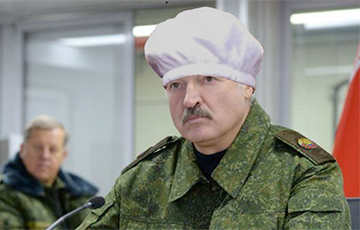‘Seizure Of These Funds May Unleash Unpredictable Consequences For Lukashenka’
16- 24.01.2024, 17:02
- 48,118

What does a default declaration mean for the regime?
On January 18, a group of Russian investors sent a notice of default on five Eurobond issues to the head of the Ministry of Finance of Belarus, Yury Seliverstau. In total, the total amount of these issues is about $3.25 billion. If the Lukashenka regime does not repay its obligations, as required by the notice, investors will have the right to file a claim in the London International Court of Arbitration or an arbitration court in the Russian Federation.
Could the Belarusian dictator have problems due to non-payment of this money? Charter97.org website talked about this with Belarusian political scientist Anatol Kotau:
— Let's start with the fact that the amount for which the default was declared is much lower, about $180 million. But the declaration of default itself allows the entire debt to be presented for payment, which amounts to those same $3.2 billion. Problems can arise, in fact they already exist, because a lot of it is debt to private investors who want their money back. Naturally, they still want to receive the promised income, because Belarusian bonds were high-margin in order to encourage clients to purchase them. An income of 8-9% is a very high rate, which simply had to increase the attractiveness of this instrument.
It is not yet possible to get your money back; the Ministry of Finance of Belarus has come up with a very long and cunning excuse for the refusal of the American agent Citigroup, who was initially involved in the placement of these bonds, to service these things. A whole mechanism was invented for crediting Belarusian rubles to special accounts at a personally approved rate with a bunch of bureaucratic issues.
The problem is that even what the Ministry of Finance of Belarus invented instead of paying bills, even this mechanism does not work. Russian investors, bondholders, have exhausted all pre-trial methods to resolve the issue. On the one hand, they presented the Ministry of Finance of Belarus with a notice of default. On the other hand, they are preparing to appeal to London arbitration, which is the body authorized to consider disputes between bondholders and their issuer under the terms of issue agreements.
In fact, without talking about any far-reaching legal consequences, the fate of three billion is now in the hands of Vladimir Putin. He can convince his “younger brother” to either pay the money or pay it to someone there, his close associates, because Russian state corporations also took part in the acquisition of these bonds. Or he can force them to suffer losses in favor of the Belarusian regime.
In the current situation, it is absolutely clear that even the decision of the London arbitration court in Belarus is not going to be implemented by anyone. Looking for the property of the Belarusian state abroad is an almost hopeless and thankless task. The question of payment or partial payment of this money will definitely become one of the main topics of the next meeting between Lukashenka and Putin.
— Why did Russian investors decide to threaten an arbitration court in London, and not immediately try to resolve this issue through the Kremlin?
— Firstly, at a minimum, you need to use all legal tools in an attempt to resolve this dispute. The Kremlin also likes to mock such petitioners: “Did you go to court, our Basmanny or some other? If not, then why are you coming to us right away? Go there first.”
Investors are well aware of the system in which they live and work, so they decided in advance to secure themselves absolutely logically: “We tried everything, there were even attempts to sue in the arbitration courts of the constituent entities of the Russian Federation with varying degrees of success, we tried everything, nothing works. Vladimir Vladimirovich, save, help, only you can get money out of Lukashenka, somehow compensate for our losses.”
In many ways, this scheme with European bonds was a mechanism for additional financing of the leaky Belarusian budget, bypassing the Russian budget. Private money filled holes in the Belarusian budget, because Belarus had exhausted all limits on borrowing directly from the Russian Federation, a state loan, or within the EAEU. There was no chance of receiving additional funds through other mechanisms.
In fact, bonds are such a quasi-state mechanism; naturally, if some legal mechanisms do not work, if Belarus does not pay its debts, then all that remains is to ask Putin to influence Lukashenka. And for Putin, this is an additional tool of pressure on Lukashenka in order to ensure even greater loyalty. A one-time withdrawal of $3.2 billion from the Belarusian budget could create a large state budget deficit with absolutely unpredictable consequences for the economy. This tool will be very useful for Putin during his meeting with Lukashenka, which will take place in the next few weeks.
— Will Russians invest in Belarus, given such stories?
— Voluntarily — no, by order — yes, because the story with bonds is voluntary-compulsory. There were also schemes that were more coercive in nature, when a Russian state bank lent money to a Belarusian bank under guarantees from the government of Belarus. There, no one really asked the Russian banks, VEB, VTB, whether it was worth giving money to a borrower who might not pay it back; the Kremlin simply said that it should be done.
Now only some adventurers who want to “win against the casino” can voluntarily invest in some Belarusian affairs. Moreover, you can win against the casino if the ball lands on double zero. But such things cannot be ruled out by force, understanding that all the flaws in the economy of the Belarusian regime fall on ordinary Russians. This is a kind of payment with other people's money for some kind of loyalty to Lukashenka.











